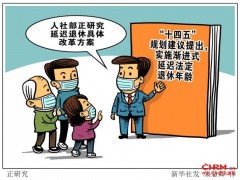•Study reveals health and vitality is closely linked to mental, social, and physical health.
•Financial well-being remains the weakest aspect of well-being, with finance-related concerns as top stressors
•High vitality leads to better health management and stronger support networks
Hong Kong/Antwerp, 1 October 2024 – Heightened financial stress is having a detrimental effect on overall health and well-being, with more people turning to social support systems for help, according to new research from Cigna Healthcare, International Health.
The Cigna Healthcare International Health Study 2024, released today with survey results from more than 10,000 respondents in 11 markets, reveals that globally, overall health and vitality has dipped while financial well-being continues to be the weakest aspect of well-being. Stress levels have decreased in most markets, but financial concerns remain persistent – with cost of living and personal finance being the most significant sources of stress globally.
The report highlights key vitality differences across demographics. Men report higher vitality than women, whose scores have significantly declined since 2023. Among generations, baby boomers have the highest vitality, followed by millennials, and Gen Z, while Gen X reports the lowest score. Millennials also experienced a notable decline in vitality compared to last year.
The findings underscore how low vitality is often rooted in a lack of financial resources, which hinders people’s ability to address their health issues. For those with low vitality, this is also compounded by a lack of essential support networks, which can further exacerbate their health challenges. Conversely, high vitality individuals often feel more empowered and capable of seeking treatment for health issues when needed.
Jason Sadler, President, International Health, Cigna Healthcare, speaks to the urgency of addressing vitality gaps: "While the downward trend of stress is a positive sign, we continue to see harmful impacts, such as the impact on sleep and the correlation of low vitality with chronic conditions. People with higher vitality are better equipped to manage their health and remain optimistic. It is critical to find ways to empower individuals to take control of their well-being."
Key findings include:
•High social well-being reflects desire for connection: Social well-being has been on an upward trend since 2022, with 45% of respondents rating their social well-being as “excellent” or “very good” this year. Two in three respondents (66%) expressed that their family has usually supported them through life, while around half (52%) said they frequently talk to their family or partner about how they feel.
•Physical, social, and mental health are key to vitality: Poor mental health, including high stress, and poor physical health, are key factors associated with lower vitality levels and should therefore be primary focuses for action.
•Financial stress has deep impacts on well-being: Financial health continues to be the weakest aspect of well-being, with 36% of respondents rating their financial health as "fair" or "poor." In regions like the US and Middle East, the cost of living and healthcare expenses are preventing many people from accessing the care they need.
•Stress shows improvement, but challenges remain: While stress levels have decreased in most markets, notably in Hong Kong and parts of Europe, 50% of respondents still report disrupted sleep due to stress, highlighting ongoing concerns.
•High vitality individuals better manage their health: Those with higher vitality are more confident in managing their health, with 90% expressing optimism, compared to just 19% of low vitality individuals.
•Flexible work lifts organizational well-being: Hybrid workers are more likely to be satisfied with their job than those working fully in-person (59% vs 55%), be enthusiastic about their job (70% vs 64%), and are less likely to search for a new job (36% vs 40%).
Jason Sadler pointed to the critical role of social systems in times of crisis: "Our findings reveal that while financial strain is impacting global vitality, social support and connections are providing a lifeline. Communities need to allocate the right resources, such as reliable health insurance and community support systems, while embracing comprehensive strategies that address the multiple determinants of vitality to reverse its decline."
“In the workplace, well-being-oriented organizational cultures and targeted support for vulnerable groups can make for a healthier and more productive workforce.”
 手机版|
手机版|

 二维码|
二维码|






